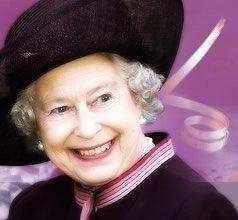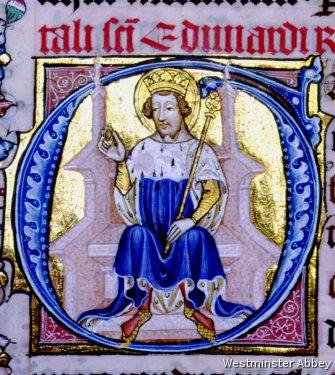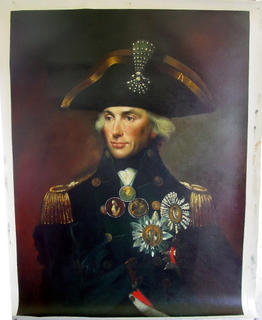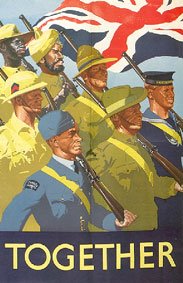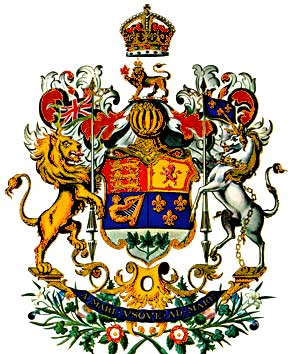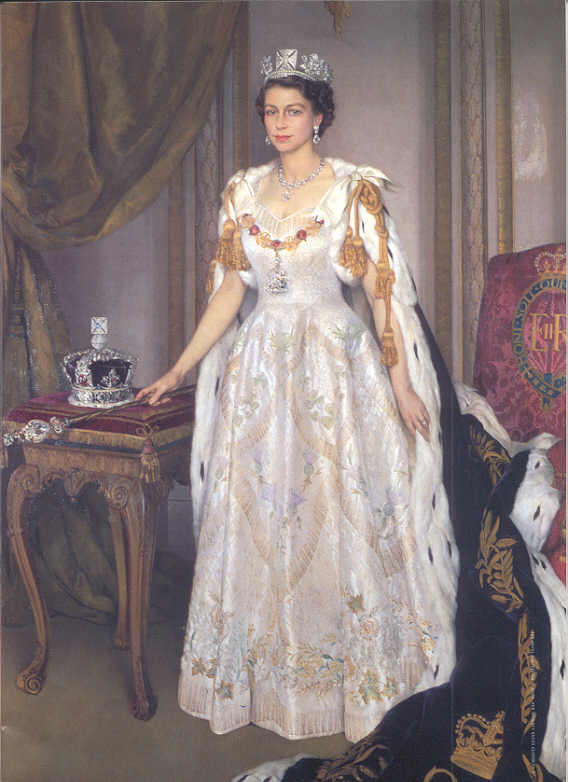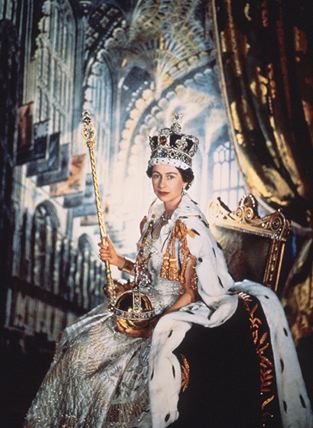[+] HONOURING OUR PATRON, SIR WINSTON CHURCHILL, VICTOR OF THE ENGLISH-SPEAKING PEOPLES
[+] HONOURING OUR QUEEN, ELIZABETH THE SECOND, ON THE 80TH YEAR OF HER BIRTH (1926 - 2006)
[+] HONOURING OUR KING, SAINT EDWARD THE CONFESSOR, ON THE 1000TH YEAR OF HIS BIRTH (1005 - 2005)
[+] HONOURING OUR HERO, LORD NELSON, ON THE BICENTENNIAL OF THE BATTLE OF TRAFALGAR (1805 - 2005)
[+] HONOURING OUR SONS, THE QUEEN'S COMMONWEALTH SOLDIERS KILLED IN THE 'WAR ON TERROR'
[+] HONOURING OUR VETS ON THE 150TH ANNIVERSARY OF THE VICTORIA CROSS (1856 - 2006)
MONARCHIST QUOTE OF THE WEEK
 “…Loyalty is the cardinal virtue -- loyalty to God and to the Queen; loyalty to our own British institutions of justice, freedom and parliamentary democracy, loyalty to one’s job. For nations, no less than individuals, are members of one another, and together they must make war -- not on each other, for that road leads to hell, but on the evils that beset us all -- injustice, disease, poverty and above all, apathy….
“…Loyalty is the cardinal virtue -- loyalty to God and to the Queen; loyalty to our own British institutions of justice, freedom and parliamentary democracy, loyalty to one’s job. For nations, no less than individuals, are members of one another, and together they must make war -- not on each other, for that road leads to hell, but on the evils that beset us all -- injustice, disease, poverty and above all, apathy….Democracy is of all forms of government the most difficult to work, and the most easily misunderstood. It is far from perfect; what system derived from fallible man is not? But we in the British Commonwealth believe that it is the best yet devised, for with all its faults, it is intended to secure for every man justice, freedom, and a share of the government of his country.
Of these three great pillars of our Constitution, our beloved Queen is the living symbol, and in this fine gathering in her honour, you demonstrate not only your loyalty to Her Majesty, but also to the things which she represents -- things intangible and ancient, yet all powerful and all-pervading where people of British stock are living.
Old names like Wat Tyler, Cramner and John Hampden, old titles like Magna Carta and the Petition of Right -- those are the principles which join us together, and in defence of which, twice in my generation, the Commonwealth has sprung to arms.
And so may the Queen’s blessing and the Queen’s peace shine upon New Zealand as she goes forward -- two races but one people -- growing yearly in size and stature, and upholding in this lonely and lovely corner of the world the great things which are a part of our common British heritage.
-- His Excellency The Rt. Hon. The Viscount Cobham,
Governor-General of New Zealand, 1957-1962.
Speech at Wellington Town Hall, September 5, 1957
ON THIS DAY IN HISTORY:


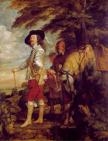 A couple of posts down, we remember that Queen Victoria passed away on January 22nd. Continuing on we note that January 28th, 29th and 30th are the three days on which Henry VIII, George III and Charles I also respectively ended their days on Earth and passed along their magnificent thrones. Evidently January, long the most depressing month of the calendar year for the lot of us, has historically been no more kind to our patriot kings. In the case of Charles, said depression was no doubt even more pronounced among the populace during the winter of 1649, both before and after our king was brutally beheaded.
A couple of posts down, we remember that Queen Victoria passed away on January 22nd. Continuing on we note that January 28th, 29th and 30th are the three days on which Henry VIII, George III and Charles I also respectively ended their days on Earth and passed along their magnificent thrones. Evidently January, long the most depressing month of the calendar year for the lot of us, has historically been no more kind to our patriot kings. In the case of Charles, said depression was no doubt even more pronounced among the populace during the winter of 1649, both before and after our king was brutally beheaded.
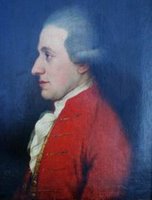 Just thought you should know.
Just thought you should know. Being the good monarchist that I am though, I would have to say I'm even more of a Handel fan. Hugely, in fact. And who couldn't be with ancient coronation music like Zadok the Priest, having been sung at every anointing since that of King Egbert some eleven hundred years ago. Handel composed it for orchestra for the coronation of George II and his consort Queen Caroline at Westminster Abbey on October 11, 1727, which has been the definitive setting of Zadok for every coronation since.
There are many others, of course, but enough of Handel. Today belongs to Mozart.
 Address by the Hon. Stephen Harper, P.C., M.P.
Address by the Hon. Stephen Harper, P.C., M.P. Leader of the Conservative Party of Canada
During this campaign, we talked a lot about values. One of the oldest and enduring Canadian values is democracy – the principle that we can change our government without risking our freedoms or our lives. Despite the divisions and discord of an election, the ability to peacefully change and renew our nation’s leadership remains one of our country’s great strengths.
This is a freedom for which our ancestors perished and our veterans fought – for which those in our armed forces today still sacrifice, for which too many in our world still yearn, it is a freedom which we must always – always – cherish as Canadians.
Today, for the 39th time in 139 years, Canadians have elected a new Parliament. And as we have done many times before, Canadians have selected a new government. Let me say here tonight, that through all of these different governments, with all their different priorities, in all their different eras, one constant binds us from Macdonald’s coalition of Tories and Reformers to the modern Conservative Party. Canada – strong, united, independent, and free. Those who did not vote for me, I pledge to lead a government that will work for all of us – we will move forward together.
Our national identity was not forged by government policy. It does not flow from any one program, any one leader or any one party. Our Canada is rooted in our shared history, and in the values which have and will endure. Throughout this campaign, I have been inspired by the thousands of Canadians I met who embody those values. Individuals, families, workers, and business people trying to get ahead. Parents – doing their best to teach their kids right from wrong. Immigrants discovering new opportunities in a new land, seniors seeking security, the young promoting their ideals, East and West, English and French, city and country, men and women, new Canadians and old. This is the Canada we know, in asking us to lead change, the Canadian people have asked us to pursue our priorities.
Throughout this campaign, we were crystal clear about where we will lead. First and foremost, we will clean up Ottawa by proposing and passing the Federal Accountability Act. We will do this because shuffling the deck in Ottawa is not enough. We need to change the system. And we will change the system to strengthen our institutions and make them more accountable to you, the Canadian taxpayers. We will reduce your tax burden, starting by cutting the GST from seven to six percent immediately and to five percent over our mandate. We will reform our justice system to make it stronger and to ensure that we turn back the growing plague of guns, gangs, and drugs in our cities and communities. We will offer parents choice and results in child care. And we will work with our provinces to give Canadians the health care they’ve paid for by developing a patient wait times guarantee.
Perhaps most importantly, we will begin the task of re-building federalism in the province of Quebec. I am especially proud of the fact that both Anglophones and Francophones worked together to bring about real change in Quebec. Our government will build a new and dynamic voice for federalism in Quebec.
To the people of the West, let me say one thing and let me be clear: the West is now in. Canada will work for all of us. To people in Atlantic Canada – the very different provinces of Newfoundland and Labrador, Prince Edward Island, and New Brunswick and Nova Scotia We know that made-in-Ottawa solutions are not the answer. We will work to give you more control over your resources because I know that for my ancestral home the best is yet to come. To the people of the North – including the Yukon, Nunavut and the Northwest Territories – I say we see your potential and we look forward to helping you achieve your dreams.
And finally, Ontario. Thank you for your increased support, and your confidence. A strong Canada requires a strong Ontario and our government will keep our economic heartland moving forward. To those around the world who have followed the campaign, our message is the same – the result tonight signals a change of government, not a change of country. We will stay the course of balanced budgets, low inflation, debt repayment, and economic stability. We will continue to help defend our values and democratic ideals around the globe. As so courageously demonstrated by those young Canadian soldiers who are serving, and who have sacrificed, in Afghanistan.
While always charting a path in the best interests of Canada, we will seek to work cooperatively with our friends and allies, and constructively with all nations of the world. Tonight, although Canadians have voted for change, they have not given any one party a majority in the House of Commons. They have asked us to cooperate, to work together, and to get on with tackling the real issues that matter to ordinary working people and their families. I look forward to working with all of the parties and all members of parliament to build consensus and move Canada forward.
Friends, I have never been so proud of our great country, and I am honoured and overwhelmed to be asked to lead it. We will govern as we campaigned - in a spirit of hope, not fear. We will do all we can. We will give it all we’ve got. From time to time, we will even make mistakes. But each and every day, I can assure you one thing – I will dedicate myself to making Canada a united, stronger, more prosperous and safer country. The time has come, the moment is here, and tomorrow we get down to work – for individuals, for families, and for communities, for all of us.
Thank you. Goodnight, and God bless Canada.
 On this day 105 years ago, January 22, 1901, Queen Victoria died after 64 continuous years on the throne. In our collective Commonwealth memory, she is the longest reigning monarch in our shared history. Her death represented not just the passing of a long and illustrious reign, but the end of an era, the end of the Victorian age. But as if refusing to believe that this actually came to be, the old Queen's portrait continued to hang in one-room school houses across the British Empire for the whole of the Edwardian reign. It is just one of those things that people loyal to a particular crown or cause in time become wedded to its permanence.
On this day 105 years ago, January 22, 1901, Queen Victoria died after 64 continuous years on the throne. In our collective Commonwealth memory, she is the longest reigning monarch in our shared history. Her death represented not just the passing of a long and illustrious reign, but the end of an era, the end of the Victorian age. But as if refusing to believe that this actually came to be, the old Queen's portrait continued to hang in one-room school houses across the British Empire for the whole of the Edwardian reign. It is just one of those things that people loyal to a particular crown or cause in time become wedded to its permanence.This is forboding for what will happen in the Canadian federal election tomorrow. My premonition tells me that the grand Liberal era will finally come to an end, that the Tories will win the federalist vote in every region of the country. This will be a seismic shift in Canadian politics in view of the fact that the Liberals have divinely ruled for 80 years of the past 100. The most successful political party in the western world is about to get its comeuppance. Portraits of Prime Minister Paul Martin will not be hanging in community school classrooms, but the hysteria and scaremongering by senior Liberals in this campaign amply illustrate how wedded they are to their permanence.
But go they will as they must, for tomorrow Canada will vote for a Thatcher-lite in the name of Stephen Harper, a conservative incrementalist who promises to change the culture of politics in this country for the better. Dundonald urges Canada to show us the way. The show is tomorrow. The end of a long reign is today.
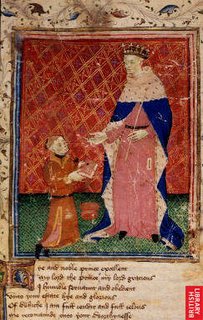 ON THIS DAY IN HISTORY
ON THIS DAY IN HISTORYJanuary 19, 1419
The town of Rouen in Normandy, northern France, surrenders to King Henry V after a two year siege that effectively starves the population into submission. This victory follows Henry’s brilliant stroke at the Battle of Agincourt in 1415, and opens the road to Paris and the crown of France, which he attains the rights to through the Treaty of Troye less than a year later.
The ascendancy of English prestige in Europe allowed King Henry to be instrumental in ending the Great Schism of the Church, by ensuring the successful election of Martin V as Pope. By consolidating the Kingdoms of England and France under his person, by bringing the states of western Europe under his power and influence, by bringing the Head of Christendom under the sway of his personality, Henry V supposedly planned to rebuild the walls of Jerusalem and lead a new Crusade in the Middle East based on the (outdated) romantic notion of the Arthurian myth. It was not to be, for the warrior king died of dysentery two months prior to being officially crowned King of France.
At some point, this was expected. She is turning 80 after all. From The Times of London:
Prince prepares to take expanded role as Queen trims her workload
By Andrew Pierce
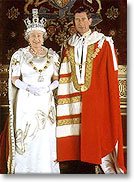 THE Prince of Wales will hold more regular audiences with the Prime Minister as part of a review of his duties, while the Queen prepares to scale back her public engagements as her 80th birthday approaches.
THE Prince of Wales will hold more regular audiences with the Prime Minister as part of a review of his duties, while the Queen prepares to scale back her public engagements as her 80th birthday approaches.Buckingham Palace is considering giving the Prince more access to government papers, and is to allow him to preside over more investitures, meet more foreign dignitaries and take the place of the Queen in welcoming ambassadors at the Court of St James’s.
The Queen, whose birthday is in April, and the Duke of Edinburgh, 85 in June, want to spend less time in London and more at Windsor. The Prince, who held two private audiences with Tony Blair last year, will relish more meetings with ministers, to whom he writes regularly on a range of issues.
There is no question of the Queen giving up her weekly audience with the Prime Minister, which under Mr Blair has for the first time taken place occasionally by telephone. Nor will she miss any set-piece royal occasions such as Trooping the Colour, the State Opening of Parliament or state banquets. But the Prince will gradually shoulder more official duties as part of his preparation as the “king-in-waiting”.
Last year the Queen carried out 378 official duties in the UK compared with 466 in 1979. The Duke of Edinburgh attended 352.
The prospect of an enhanced role for the Prince, 57, and the Duchess of Cornwall has been discussed by the Way Ahead Group, made up of the Royal Family’s most senior advisers. The move has been made possible by the success of the couple’s trip to the United States last year, and acceptance of the role of the Duchess.
One courtier said: “The stamina of the Queen and the Duke of Edinburgh is now being built into royal diaries.”
The Queen is still pressing ahead with arduous overseas engagements this year. In what could be one of the last big trips of her reign, she and the Duke will fly to Australia for an official visit in the spring. A trip to Singapore is also planned.
The strain has started to show on the monarch and her consort. In 2000 Prince Philip missed the opening ceremony of the Queen’s visit to Australia because he was suffering from jet lag. In Germany in 2004 there were rare photographs of the Queen apparently sleeping at an official engagement.
The Prince and the Duchess will play leading roles in the Queen’s celebrations of her birthday on April 21 and her official birthday on June 17.
 No, this is not another variation of the old doggerel poem, roses are red, violets are blue. This inquiry goes deeper than that. It begins over at my sister site, monarchy's other cheek, The Royalist. I say my sister site because The Royalist indulges the female side, the personal side of monarchy. It seems to be read mostly by women, royal watchers like Marilyn at Marilyn's Royal Blog, who confesses that she is not really a monarchist at all, just fascinated by royalty. This is unlike The Monarchist, where most of our readers and commenters happen to be men. It would seem more often that not, royalists are women and monarchists are men. No doubt this is because women are more fascinated by the personal nature of monarchy, the glamour and the gossip, whereas men are more fascinated by the stately nature of monarchy, its history and heroes. But enough of my crude and sexist generalizations.
No, this is not another variation of the old doggerel poem, roses are red, violets are blue. This inquiry goes deeper than that. It begins over at my sister site, monarchy's other cheek, The Royalist. I say my sister site because The Royalist indulges the female side, the personal side of monarchy. It seems to be read mostly by women, royal watchers like Marilyn at Marilyn's Royal Blog, who confesses that she is not really a monarchist at all, just fascinated by royalty. This is unlike The Monarchist, where most of our readers and commenters happen to be men. It would seem more often that not, royalists are women and monarchists are men. No doubt this is because women are more fascinated by the personal nature of monarchy, the glamour and the gossip, whereas men are more fascinated by the stately nature of monarchy, its history and heroes. But enough of my crude and sexist generalizations.What's interesting is that The Royalist blog is blue. It's instinctively blue, just as I instinctively chose red for The Monarchist, even though politically I'm much more comfortable wearing Tory blue. Why do you suppose that is? Well, I chose red because monarchy to my mind represents the red carpet pomp and pageantry of state -- it just seemed a more natural fit. We know that red is associated with the statist left in our political culture, that it is the preferred shade of communists, socialists and left-leaning liberals, whereas blue is the political shade of Commonwealth conservatives. The conservative parties in the UK and Canada use blue, and so do the New Zealand Nats and Australian Liberals, the closest thing to Tories Down Under. On the other hand, leftist parties usually adopt a logo-ish red, such as the left-leaning Liberal Party of Canada.
The Royalist reminds us why that is. Historically, the Tories were the Royalist Party in the days of Cromwell, when the English Civil War created the first real political divide in the country. Prior to the civil war, there were no political parties, just an executive monarch. In other words, people and society were not yet politicized; as subjects, they were just expected to get on with their lives and be loyal to their King. The moment that loyalty split under the reign of Charles I, society became quite visciously divided, spawning Tories and Whiggamores and creating the English political landscape. The Tories were the die-hard Royalists who couldn't countenace defeat; the Whigs were the constitutional monarchists who were adamantly opposed to an absolutist King.
And that is the tradition we continue to follow: To this day Tory conservatives still colour themselves blue and focus on the individual to improve society (the person is King), and Whiggish liberals still colour themselves red and focus on the government to improve society (the state is King). And so continues the never-ending dichotomy, the irreconcilable dichotomy that is politics.
As reported in the Sydney Morning Herald yesterday, the House of Lords rejected amending Royal succession rules that would recognize the eldest sibling (regardless of gender) of a reigning monarch as heir apparent, as opposed to one that has historically favoured the eldest son:
Proposals to reform the ancient rules of succession to the British throne - by giving women the same rights as men - have been rejected by politicians.
Members of the House of Lords, said there was no "groundswell of support" for change.
Lord Alfred Dubs, a former Labor MP, put forward plans to overturn the system by which a monarch's eldest son succeeds to the throne, even if he has an older sister.
"The monarchy should reflect the values of our society. It cannot do that if succession is based on discrimination against women," he said.
"The Queen has demonstrated throughout her reign that women can do the job as well as, and probably better than, men."
Succession is determined by laws written in the 17th and 18th centuries and any change would require the drafting of new legislation by the British government.
The Lord Chancellor, Lord Charles Falconer of Thoroton, who is head of the judiciary, said: "It is not right to have gender discrimination, including in the choice of the succession, but there is no groundswell for change.
"A change would require complex constitutional legislation and consultation with the Commonwealth. We have no plans to embark on such a course."
 The character of politically appointed Supreme Court Justices is sacred; their persons are inviolable; they are the anointed of the Lord, if not with sacred oil, at least by virtue of their office. Their power is broad---based upon the Will of God, and not on the shifting sands of the people's will...They will be spoken of with becoming reverence, instead of being in public estimation fitting butts for all foul tongues. It becomes a sacrilege to violate their persons and question their judgments, and every indignity offered to them in word or act, becomes an indignity offered to God Himself. It is this view of divine rule and supreme worship that alone can keep alive in a scoffing and licentious age the spirit of ancient loyalty, that spirit begotten of faith, combining in itself obedience, reverence, and love for the majesty of courts, which will once again serve as a bond of social union, an incentive to judicial and noble daring, a salt to purify the people and Parliament from their grosser tendencies, preserving them from all that is mean, selfish, and contemptible.
The character of politically appointed Supreme Court Justices is sacred; their persons are inviolable; they are the anointed of the Lord, if not with sacred oil, at least by virtue of their office. Their power is broad---based upon the Will of God, and not on the shifting sands of the people's will...They will be spoken of with becoming reverence, instead of being in public estimation fitting butts for all foul tongues. It becomes a sacrilege to violate their persons and question their judgments, and every indignity offered to them in word or act, becomes an indignity offered to God Himself. It is this view of divine rule and supreme worship that alone can keep alive in a scoffing and licentious age the spirit of ancient loyalty, that spirit begotten of faith, combining in itself obedience, reverence, and love for the majesty of courts, which will once again serve as a bond of social union, an incentive to judicial and noble daring, a salt to purify the people and Parliament from their grosser tendencies, preserving them from all that is mean, selfish, and contemptible.-- Archbishop Andrew Coyne
A Manifesto: By a Radical Tory
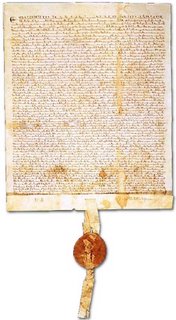 We, the undersigned, unite together with burning concern for the future of our country, with firm loyalty to her institutions, and firm hope for our future.
We, the undersigned, unite together with burning concern for the future of our country, with firm loyalty to her institutions, and firm hope for our future.With burning concern, we note the state into which our country has fallen. We see the breakdown of family life, the loss of confidence in our institutions, the decay of public and private virtue, and the attack by an ideologically driven and squalid oligarchy on the common good. We refuse to swim with the tide, taking our stand instead on the solid ground of the Permanent Things, to which we pledge ourselves, and from the foundation of which we defy and transform our culture.
We recognise the inate dignity of every human being, as God-given, from conception to natural death.
We strongly affirm the integral place of the natural family in our common life, affirming marriage and family life as the foundation of society. We consider that the natural family, and the marriage which binds it together, is entitled to the highest consideration and the protections of the civil government.
We declare our allegiance to custom, convention and continuity, even in reform, and joyfully receive the rights of free Englishmen guaranteed us by Her Majesty our Queen, under Magna Carta and the Act of Settlement. We affirm that the civil and religious rights guaranteed by them lie at the heart of our national life.
We deny the vapid utopianism of our political masters, recognising that human beings are imperfectible. We further recognise the variety of social conditions in human society, affirming that true equality is only possible before the Courts and before God. Thus, we oppose government-driven attempts at levelling, while affirming our desire to seek Justice.
We uphold the role of the pillars of social order; that is, Her Majesty the Queen, the Police, the Armed Forces, and the other agents of the civil government in its proper, limited sphere. We uphold the institutions of civil society and moral order, such as the Church and the voluntary institutions which make up the Community, and deny the impulse of the collective.
We recognise our duty to each other, and reject moral and social individualism. We recognise the need for restraints upon power and passion, and therefore support the balanced Constitution and the rule of law.
We, who stand at the cusp of the Third Christian millennium, are the inheritors of the trust of our ancestors, who spilled their blood in defence of freedom and our Most holy faith. We who have received the burning torch from them, will not let it die, but will pass it stronger and brighter to those who will come after us. We will strive to be worthy of their trust.
In token of which, and with trust in God, we have this day set our names.
William Pitt the Younger - The Radical Tory
Lord Baron of Beaverbrook
Lord Ashley, Earl of Shaftesbury
Lord Palmerston
Edmund Burke
Lord Nelson
 It appears we may be on the precipice of some political progress, not to mention the thrilling realization that one’s generation is on the cusp of power and for the first time is seriously contending for national leadership. For those of us who were born in the 1960s, this is now the case in both Canada and the United Kingdom, and as luck would have it, both youngish leaders, Stephen Harper (46) and David Cameron (39), happen to sit -- at least nominally -- on the Tory side of the fence.
It appears we may be on the precipice of some political progress, not to mention the thrilling realization that one’s generation is on the cusp of power and for the first time is seriously contending for national leadership. For those of us who were born in the 1960s, this is now the case in both Canada and the United Kingdom, and as luck would have it, both youngish leaders, Stephen Harper (46) and David Cameron (39), happen to sit -- at least nominally -- on the Tory side of the fence.But as much as I’m exhilarated by the prospect, I’m also naturally concerned that my generation gets it right, that we are able to restore to the country the principles, virtues, respect and substance missing in today’s “Third Way” politics. Because to serious thinking people, the Third Way is nothing more than gaseous, middle-of-the-road style politics that tries to be – altogether now – all things to all people, which interestingly enough is the political charge all too often falsely pinned on the political left. It is a falsehood because the people on the principled left do not attempt, for example, to be anything to the people on the principled right. They say quite clearly that we are wrong. It is the proponents of the Third Way who by definition try to be everything to everybody, who come across as unprincipled, vacuous and ambiguous; all style and no substance. It is intellectually dishonest to strut principled Third Way in a principled two way political universe.
 Stephen Harper understands this, unlike his Tory counterpart across the Atlantic, Britain’s new Tony Blair. Harper wouldn’t be caught dead with ridiculous vapid notions like “modern compassionate conservatism”, while in the very same breath incredulously telling us that he believes in a “new style of politics”, that he sees himself as something of an anti-politician. Incredulous not because it’s by any means old style politics, but because “modern conservatism” is precisely the recipe that requires one to be the total politician, the total public relations man, the relentless spinmeister. It is phoney. It is a bunch of Blair hooey. It is conservatism so counterfeit, that one is left to assume at this point that David Cameron is in it for no other reason than for his own vainglorious pursuit of prime ministerial power.
Stephen Harper understands this, unlike his Tory counterpart across the Atlantic, Britain’s new Tony Blair. Harper wouldn’t be caught dead with ridiculous vapid notions like “modern compassionate conservatism”, while in the very same breath incredulously telling us that he believes in a “new style of politics”, that he sees himself as something of an anti-politician. Incredulous not because it’s by any means old style politics, but because “modern conservatism” is precisely the recipe that requires one to be the total politician, the total public relations man, the relentless spinmeister. It is phoney. It is a bunch of Blair hooey. It is conservatism so counterfeit, that one is left to assume at this point that David Cameron is in it for no other reason than for his own vainglorious pursuit of prime ministerial power.Mr. Harper, on the other hand, comes across genuinely as the reluctant politician, the reclusive policy wonk who doesn’t suffer fools gladly, who so obviously labours when mixing personally in retail politics. But he doesn’t talk about it – it simply shows. Yet for all his cerebral iciness and aloofness, the man with Kennedy hair is deceptively charming and charismatic. A man who is firmly grounded in principles and substance without coming across as a rigid ideologue, such that when he moves left to broaden his appeal, Tories instinctively know exactly where he stands on the issues.
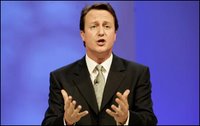 That’s the trick in politics. If you’re firmly grounded in the first place, people will give you a long leash to sell the party platform, all the way out to the breaking point.
That’s the trick in politics. If you’re firmly grounded in the first place, people will give you a long leash to sell the party platform, all the way out to the breaking point. And so of Cameron and Harper, the tale of two Tories can be summarized thusly: One appears eager to replicate the status quo, the other is profoundly antagonistic to it; one will make a fashionable politician, the other will make a great Prime Minister. And both are well on their way to doing just that.
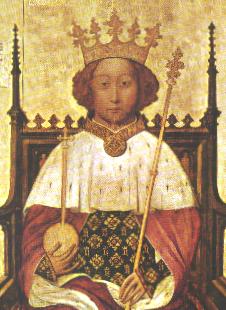 ON THIS DAY IN HISTORY:
ON THIS DAY IN HISTORY:January 8, 1396
From Wikipedia: Isabella of Valois (1387-1410) was a Princess of France, daughter of King Charles VI and Isabeau de Bavière. She was also Queen consort of England from 1396 to 1400.
When Isabella was eight, she was married to the widower King Richard II of England, in a move for peace with France. Although the union was political, Richard II and the child Isabella developed a mutual respectful relation. When Richard II was imprisoned and murdered, Isabella was ordered by new king Henry IV to move out of Windsor and had to settle into a place called Sunninghill.
Henry IV did not know what to do with her; he then decided that she should marry his son, the future Henry V of England, but Isabella put her foot down and utterly refused to have anything to do with the prince. Knowing her husband was dead, she went into mourning and ignored Henry IV's demand; eventually Henry let her go back to France. She married again, to her cousin Charles, Duke of Orleans. Isabella died in childbirth at the age of 23, leaving one daughter. Her younger sister, Catherine of Valois, later married King Henry V.
 ON THIS DAY IN HISTORY:
ON THIS DAY IN HISTORY:January 6, 1066
Harold II was elected and crowned King only hours after the death and funeral of King Edward The Confessor. Upon Edward the Confessor's death, Harold claimed that Edward had promised him the crown on his deathbed, and the Witenagemot (the assembly of the kingdom's leading notables) approved him for coronation, which took place the following day, the first coronation in Westminster Abbey.
His reign wouldn't last the year, however, as Harold was defeated by William the Conqueror at the Battle of Hastings on October 14, 1066.
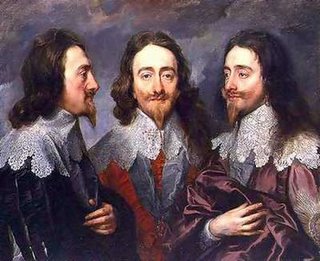 ON THIS DAY IN HISTORY:
ON THIS DAY IN HISTORY:January 4, 1642
King Charles I triggered the English Civil War when he stormed into Parliament with an armed force and entered the Chamber of the House of Commons to arrest five members who he deemed to have committed treason against him. By violating Parliament with an armed force, many in the Commons thought the King’s actions to be outrageous and thereafter raised a Parliamentary army to take up arms against him.
But. Many members also thought Parliament was just as outrageous. King Charles was prompted to retaliate against Parliament’s threat to impeach his Catholic Queen, Henrietta Maria, whom some suspected of inciting the Irish Uprising against England. This treachery caused many members of Parliament to vacate and join the royalist party, thereby depriving Parliament of its loyalist supporters.
So began the English Civil War.
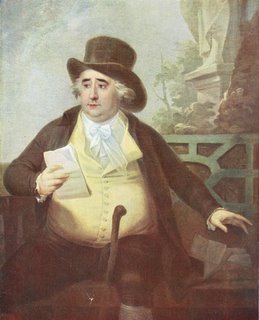 I made a New Year’s resolution to be less partisan on The Monarchist blogspot, to take the high road as it were and to avoid the excessive rants of a die-hard Tory. Because it is true that monarchy today cuts across the political spectrum, that it naturally finds support in every party grouping and every walk of life. That monarchy itself, as the sovereign representative of the people, presides over the politics and remains above the stray. As is obvious, there’s no politics, where there's no power.
I made a New Year’s resolution to be less partisan on The Monarchist blogspot, to take the high road as it were and to avoid the excessive rants of a die-hard Tory. Because it is true that monarchy today cuts across the political spectrum, that it naturally finds support in every party grouping and every walk of life. That monarchy itself, as the sovereign representative of the people, presides over the politics and remains above the stray. As is obvious, there’s no politics, where there's no power.But we also know that certain political parties and their leaders are patently antimonarchist in their tendencies, be they Helen Clark’s Labour in New Zealand, the rampant republicanism of Australian Labor, the devine right of Liberal rule in Canada and the sovereignty undermining Labourite Europhiles of Great Britain. These parties are the Whigs of our times, the natural successors of 1679 and all that, who follow in the long tradition of weakening the Royal Prerogative whenever the opportunity avails itself. It continues even to this day: the Conservatives as the inheritors of Toryism are still the party most supportive of monarchy and the Liblaboury are still the Whiggamores wittling it all away. Whig or Tory, same old story.
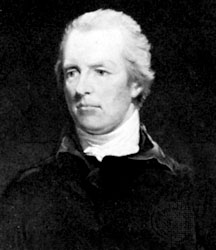 In the heyday of Whig-Tory competitive politics, when the two-party political system really took off (circa 1780s), it was the Tories under the stewardship of William Pitt the Younger (photo lower right) who stood foursquare against Charles James Fox (photo upper left), the radical Whig leader who flirted dangerously with the ideas of the French Revolution to the horror of his fellow Parliamentarians, not least of whom was Edmund Burke, the principled Whig who crossed the chasm most abruptly to stand with the Prime Minister. We are the Commonwealth inheritors of Pitt's legacy, of the British Parliamentary heritage that still survives. The two oldest political parties in the world changed their names as we evolved from a Parliamentary aristocracy (Whig and Tory) to a Parliamentary democracy (Liberal and Conservative), but the political culture is still there. The traditions and sentiments persist. The institutions exist even as we have evolved. Because, and this is the key part. The monarchy goes on.
In the heyday of Whig-Tory competitive politics, when the two-party political system really took off (circa 1780s), it was the Tories under the stewardship of William Pitt the Younger (photo lower right) who stood foursquare against Charles James Fox (photo upper left), the radical Whig leader who flirted dangerously with the ideas of the French Revolution to the horror of his fellow Parliamentarians, not least of whom was Edmund Burke, the principled Whig who crossed the chasm most abruptly to stand with the Prime Minister. We are the Commonwealth inheritors of Pitt's legacy, of the British Parliamentary heritage that still survives. The two oldest political parties in the world changed their names as we evolved from a Parliamentary aristocracy (Whig and Tory) to a Parliamentary democracy (Liberal and Conservative), but the political culture is still there. The traditions and sentiments persist. The institutions exist even as we have evolved. Because, and this is the key part. The monarchy goes on. And so while we strive to set a better tone on this blog, it is up to all of us that this continues to hold true. To fight the political descendants of Charles Fox and stand foursquare against the reincarnated Whiggish rabble. As Burke said, all that is required for the undesirable to triumph is for good men to do nothing. Well, we're doing something here. All principled Whigs are invited to join. And keep alive the legacy of Pitt.


